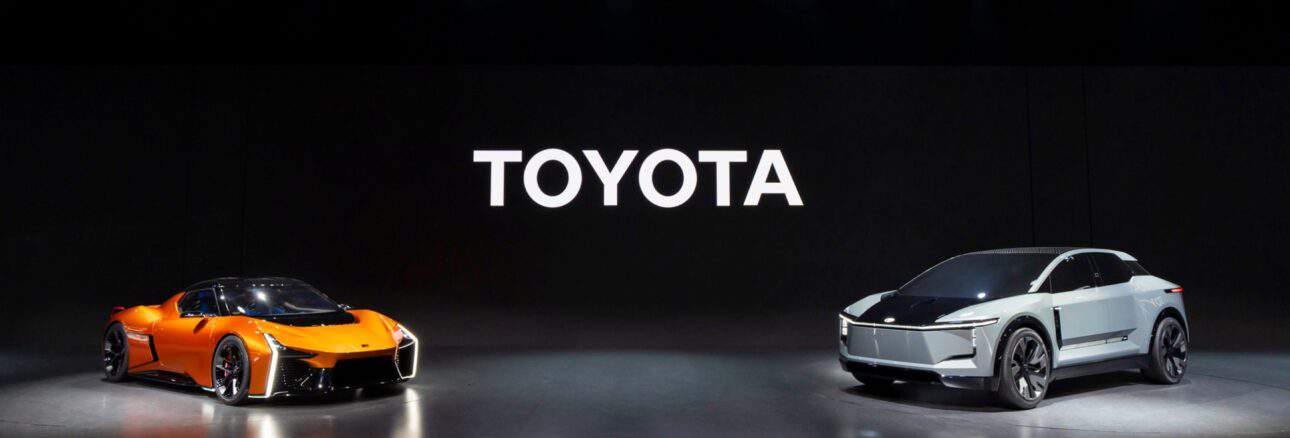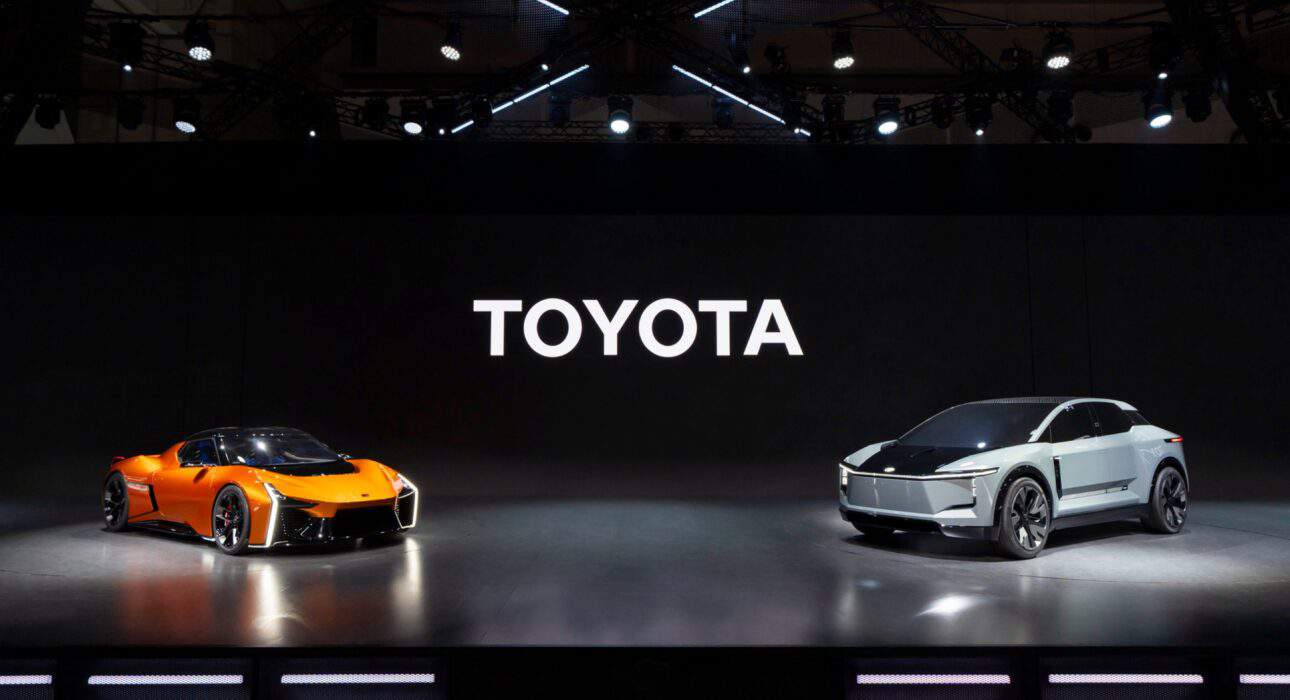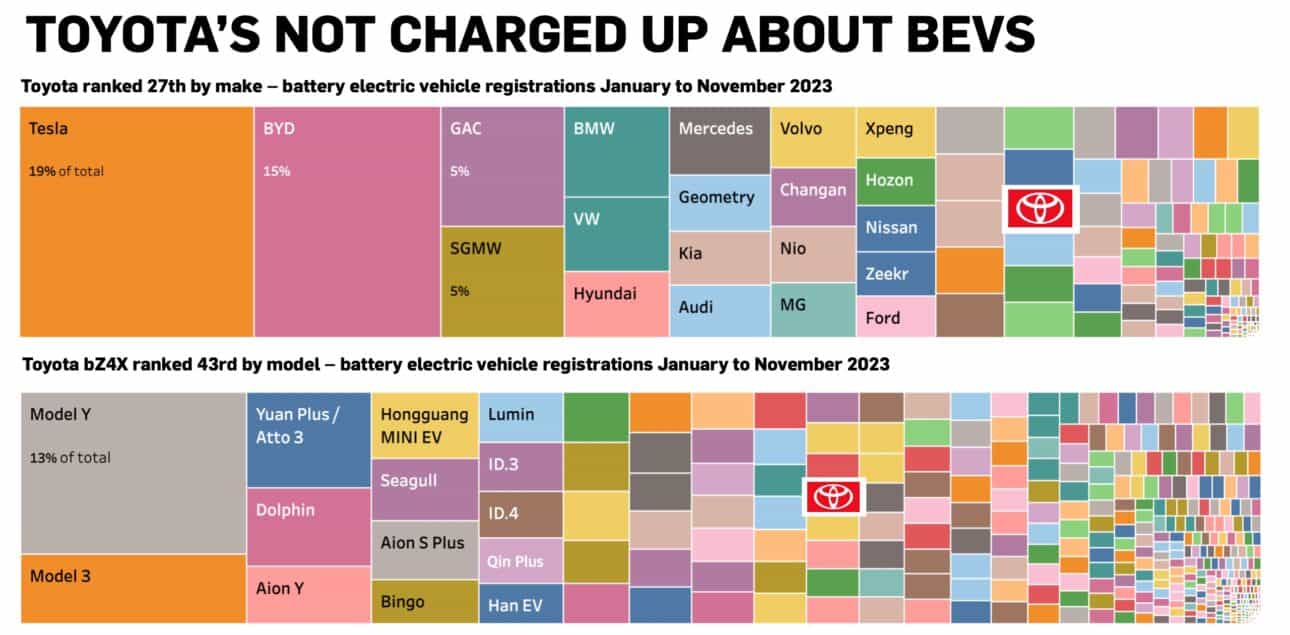Toyota: one sale out of 100 will be fully electric
10k BEVs a month
After criticism from institutional shareholders about its electrification progress, Toyota in June last year announced a complete overhaul of its EV strategy, including plans for solid state lithium-ion batteries, which it says will help it leapfrog competitors.
On Tuesday, Toyota predicted operating profits of $33 billion for its fiscal year ending in March, sending US-listed shares of the company soaring to a record high.
In terms of volume, Toyota is the world’s biggest carmaker, trading the crown every few years with Volkswagen when including the German company’s entire roster of brands.
Out of an overall total of 9.5 million, Toyota forecasts that its EV sales for fiscal 2024 will come in at 3.9 million units, of which only 120,000 (or 1.3%) will be battery electric vehicles (BEVs).
With a market cap over $300 billion, Toyota is the second most valuable global automaker behind Tesla. The two automakers have had widely divergent performances so far in 2024 with Toyota’s stock up nearly 30% while Tesla’s has been beaten down 24%.
The reaction seems to indicate that Wall Street and Tosho investors have made a U-turn and come around to Chairman Akio Toyoda’s vision for the future, who after pressure vacated the CEO office at 1 Toyota-Cho last year.
A yen for HEVs
Toyota also recently announced it would invest $1.3 billion at its sprawling North American manufacturing hub in Kentucky, to produce among others a new, three-row fully electric SUV.
The new vehicle would only be the Japanese giant’s third BEV available in North America, joining the bZ4X SUV and the Lexus RZ. The battery pack assembly line planned for Kentucky will be supplied with modules from its North Carolina facility.
In October, Toyota said it is more than doubling its investment in North Carolina to $14 billion and will devote 10 of 14 assembly lines to plug-in hybrid electric vehicle (PHEV) and conventional hybrid electric vehicle (HEV) models.
The additional $8 billion investment increases the number of PHEV and HEV lines from four previously. Toyota’s next generation Camry, a model closely associated with the company’s reputation for making dependable (if not exactly exciting) cars, will now be hybrid only.
With registrations of 1.6m passenger EVs through November last year, Toyota ranks second globally just behind BYD and a good 658,000 units ahead of Tesla.
When it comes to BEVs, however, the picture is vastly different.
Leapmotored
Through the first 11 months of last year, BEVs captured only 6% of the Japanese market. Within this meager slice, Toyota (including Lexus) is only ranked fifth at home, behind Mercedes Benz but ahead of BMW.
With 92% of its sales being mild and conventional hybrids, on the global BEV stage, Toyota is ranked as the 27th biggest carmaker.
As such, the 87-year-old Japanese industrial giant lags behind Chinese start-ups Xpeng (first vehicle produced November 2018), Nio (June 2018), Zeekr (October 2021) and Leapmotor (June 2019).
That said – Toyota managed to up its BEV sales by over 500% in 2023 compared to the year before but, oddly enough for world’s largest vehicle manufacturer, this big growth was a function of its very small base.
In terms of battery capacity deployment, an insightful indicator of EV market penetration alongside unit sales, Adamas data shows that globally, BEVs were responsible for 86% of all gigawatt-hours rolled onto roads through the first 11 months of last year.
With Toyota aiming for just 1-in-100 vehicles produced globally this year to be fully electric, its contribution to the above will remain minimal.
EV, Battery and Battery Materials Market Intelligence:
EV Battery Capacity and Battery Metals Tracker
Building on ongoing EV registrations in over 110 countries, our web-based platform helps users track monthly deployment of battery metals and materials, battery capacity, and the ever-evolving competitive landscapes of battery chemistries and cell suppliers.
EV Battery Capacity Monthly
The ‘EV Battery Capacity Monthly’ is a subscription-based report for tracking monthly deployment of passenger EV battery capacity by EV type, region, country, make, model, cell supplier and cell chemistry on an ongoing basis.
Back to overview



